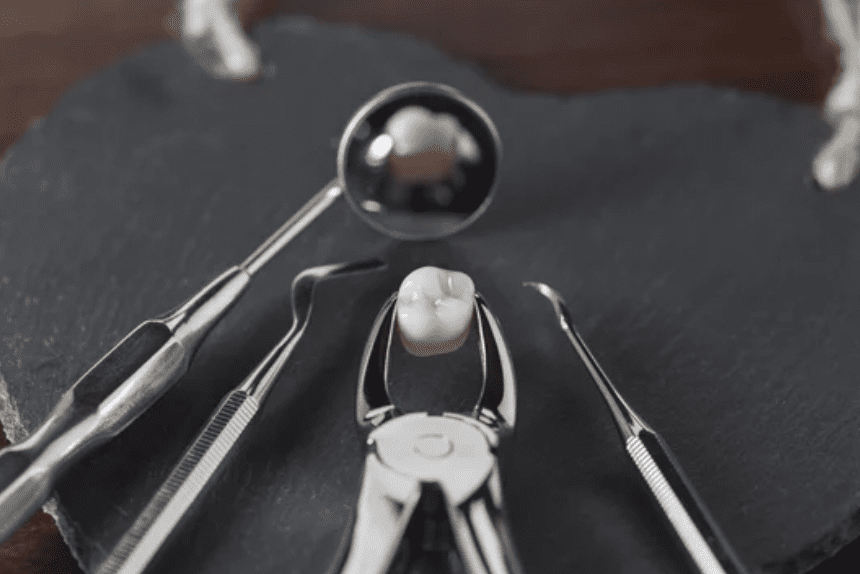So, you’re in your late teens or early twenties, and you go to the dentist for a check-up. After taking some X-rays, your dentist leans in and says those four little words: “Your wisdom teeth are coming in.” And then they might follow it up with a suggestion you were hoping to avoid: “We should probably think about removing them.”
Your first thought is probably, “But why? Do I really need to?” It’s a totally fair question. Having teeth pulled sounds like a big deal, and it’s normal to be a little nervous. The short answer is that for most people, yes, removing wisdom teeth is the best and safest choice. In fact, it’s one of the most common dental procedures out there. But let’s break down the “why” so it makes a lot more sense.

The Rare Case: When You Might Get to Keep Them
First, let’s be clear: not every single person on the planet has to have their wisdom teeth removed. There are a few lucky people who get to keep theirs. For that to happen, your wisdom teeth need to pass a seriously tough report card:
- They have to come in completely. This means they push through your gums fully, just like all your other teeth did. No hiding, no peeking halfway.
- They have to be perfectly straight. They can’t be tilted or angled because they need to line up with your other molars.
- They can’t mess up your bite. Your top and bottom teeth should still fit together comfortably when you close your mouth.
- You have to be able to clean them. You need to be able to get your toothbrush and floss all the way back there to keep them free of plaque, cavities, and gum disease.
If your wisdom teeth can meet all these conditions, your dentist might give you the green light to keep them. But most people’s jaws simply aren’t big enough to fit this extra set of large molars comfortably. It’s like trying to fit four more people onto a couch that’s already full. Something’s gotta give.
The Real Deal: Why Removal is Usually the Way to Go
Because there’s not enough room, wisdom teeth often come in bad and cause all sorts of problems.
Problem #1: They Get Stuck (A.K.A. Impaction)
This is the most common issue. An “impacted” tooth is one that gets trapped. It might be stuck completely under your gums, or it might only partially poke through. Imagine a tooth trying to erupt sideways or on a diagonal. It’s not a pretty picture.
Impacted teeth can put a huge amount of pressure on your other teeth, pushing them out of alignment. But it gets worse.
When a tooth is trapped, a fluid-filled sac called a cyst can form around it. This cyst isn’t just a harmless bubble. It can grow and actually damage the roots of your other teeth, important nerves, and even the bone that holds all your teeth in place.
Problem #2: They Become a Hygiene Nightmare
Even if a wisdom tooth partially comes through, it creates a tiny flap of gum tissue that’s impossible to keep clean. Food and bacteria get trapped in there, and your toothbrush and floss can’t reach them.
It’s the perfect breeding ground for a nasty infection in your gums (called pericoronitis). Not to mention cavities in the wisdom tooth itself and the molar right next to it. You could be doing a great job brushing all your other teeth, but that one hard-to-reach area can become a constant source of trouble.
Problem #3: They Mess Up All Your Hard Work
If you had braces, listen up! Your wisdom teeth can undo all that expensive and time-consuming work by pushing your front teeth forward, causing crowding and shifting. They can also completely throw off your bite, making it difficult to chew properly. This isn’t just an aesthetic issue because a bad bite can cause jaw pain, headaches, and uneven wear on your teeth.
What Happens If You Just… Don’t?
You might be thinking, “I’ll just deal with the pain if it happens.” But the problems that come with problematic wisdom teeth don’t usually just go away. That pain from an infection or crowding will keep coming back.
You could end up needing multiple rounds of antibiotics for recurring infections. And if a cyst forms or the tooth damages the roots of your other molars, the treatment becomes much more complex. It can be painful, and more expensive than a standard wisdom tooth extraction would have been.
In the end, your dentist isn’t suggesting this to put you through an ordeal. They’re looking at the big picture of your long-term oral health. Removing wisdom teeth is a proactive step. It’s about preventing pain, infection, and costly dental problems down the road.
It’s one of those “short-term hassle for a lifetime of benefits” kind of deals. So, if Dr. Chen and Dr. Sowell recommends it, know that they have your best interests in mind. Give us a call at (972) 382-6855 to schedule a dental exam today.
